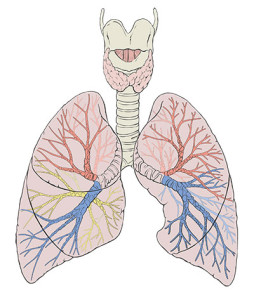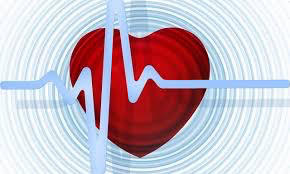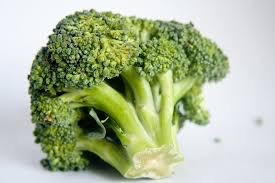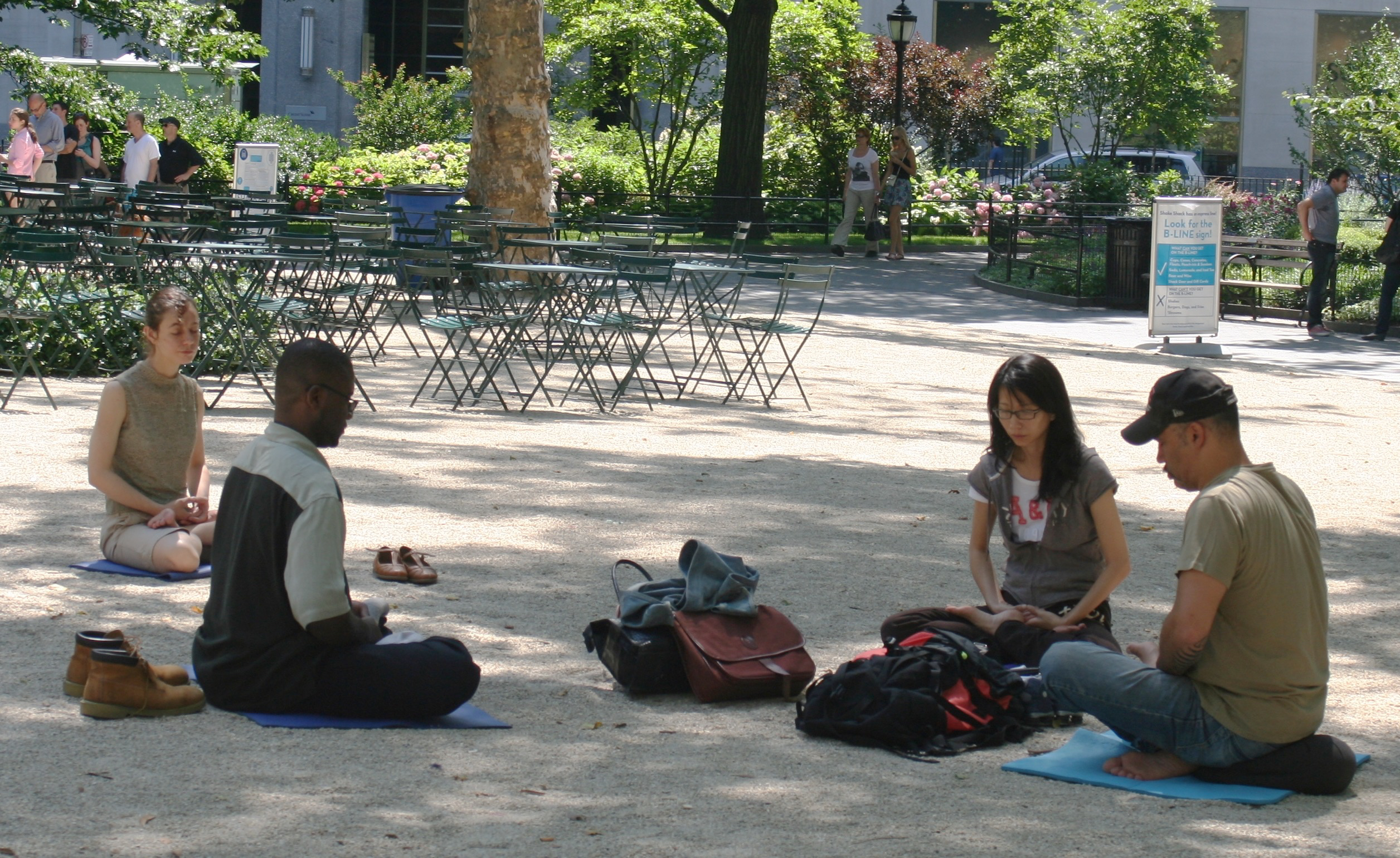- The Wellness Tree1480 Beltress St, Suite 5
Dunedin, FL 34698727-216-6929 Call for appointments & information
- Testimonials
I went to get acupressure because I was past my pregnacy due date, but after the appointment I felt like I was walking on air. I had a lot of energy, my pains were gone, and I realized I needed it more than I really knew. She is understanding and very professional. I would definitely recommend Dr. Graves.
-S.S
Dr. Carrie Johnson is what all physicians should be–knowledgeable, concerned, and caring. She listened and worked with me as an individual. She took me from a life of fear of exacerbating the already constant pain to a life where I can be physically active because the pain can be eliminated by her skilled treatment. Not only did she provide healing with accupuncture to relieve TMJ and radiating nerve pain, she also taught me two simple exercises that extend the effect
... Read more »I am a sr citizen and have been going to Dr. Carrie for a year and am hooked on acupuncture!! She helped me with losing weight and lowering my blood pressure. A great way to stay well and maybe someday all insurance carriers will see to it to cover acupuncture as a medical treatment.
I am a fitness freak: I like cross-country running,cycling, weight lifting, playing basketball and racquetball. But at a certain point I started having severe back pains, spasms and hamstring tightening which sidelined me for quite a while as I tried physical therapy but I did not get immediate relief I was looking for. Then I visited with Dr Carrie Johnson for initial visit and analysis of my condition, at first I was skeptical but Dr Carrie Johnson made me a believer of Acupuncture and Active release techniques. Thanks
... Read more »Let me start by saying I am a certified CrossFit trainer with multiple specialty certifications and I am also a USAW certified Sport Performance Coach. I have dealt with minor injuries before but nothing that forced me to consider some type of rehab or treatment plan. While training high volume or a competition I suffered a low back injury. After months of rest and self prescribed rehab I wasn’t getting back to the shape I wanted and my symptoms persisted.
... Read more » -
Latest Articles:
- • The Best Ways to Protect Your Skin from the Sun This Summer •
- • Savoring Summer with Recipes Using the Best Summer Ingredients •
- • Top 5 Best Staycation Ideas for Summer •
Health WellNews
Fall – Season of the Lungs

The theories of Chinese medicine suggest that each season relates to a different organ system. The Fall is the season of the Lungs. It’s the time of year when people are easily affected by environmental influences. Great changes are taking place in the weather and plant life around us. Some people refer to it as the “flu season.”
The lungs are called the “delicate protective organ,” because they are the only organ that comes into direct contact with the external environment. This can make them vulnerable to the environmental influences which can lead to colds, the flu, or allergies.
The lungs are also involved in the production of Wei Qi. Wei Qi is a similar concept to what Western medicine refers to as the immune system. Wei Qi provides the body with an “immune system-like” barrier that protects the body from harmful pathogenic factors that can enter into it, and which may eventually lead to illness and/or disease.
Healthy and strong lungs can enhance the proper functions of the entire body. Through an intricate process, the Lungs extract “pure essence” from the air we breathe, and combine it with the food we ingest to produce the Wei Qi. This immunity-like system is then circulated throughout the entire body, providing it with a first line of defense.
When the lungs are functioning correctly, we remain healthy, and potentially free from illness. But when our lungs become weakened or imbalanced, our body may not have the capacity to produce the correct amount of Wei Qi.
When this occurs, the stage for “catching” a cold, the flu or allergies is set. Weak lungs and Wei Qi can also lead to asthma, eczema, dry skin and other problems.
The lungs are negatively affected by many factors: an improper diet, emotional stress, unexpressed or long-held grief or sadness, inherited constitution, smoking, bad air or pollution.
The ancient classic text, Zhen Jing, states, “If the lungs function well, it can activate the flow of Qi, and nourish the whole body with Wei Qi, as rain nourishes young crops.” Proper lung function is necessary to keep us healthy and to help ward off illness and disease.
S.A.D. Times Ahead?!
 The shorter days and changes in weather may throw many of us off balance, affecting our mood and behavior. In fact, ten percent of us may be diagnosed with a common problem called Seasonal Affective Disorder (S.A.D.).
The shorter days and changes in weather may throw many of us off balance, affecting our mood and behavior. In fact, ten percent of us may be diagnosed with a common problem called Seasonal Affective Disorder (S.A.D.).
People suffering from S.A.D. may have a few, or all symptoms present; changes in appetite, weight gain, cravings for sweet and starchy foods, a tendency to oversleep and have difficulty in waking, fatigue, low energy, decreased libido, aches, pains, and difficulty focusing.
These symptoms can be severe enough that our lives will be completely disrupted. We may even try to avoid social situations and become a recluse this time of year.
Traditional treatments involve mood altering drugs. While they may be effective, drugs can also have severe side-effects. Instead, many people choose to use natural remedies to combat S.A.D. such as exercise, herbs and light therapy. Light therapy involves sitting in front of a light unit equipped with specially designed bulbs. These bulbs duplicate the normal light spectrum of the sun on a cloud-free spring day. Since lack of sunlight is a factor in S.A.D., this therapy works quite well.
Light therapy requires an exposure to these special bulbs for at least 30 minutes a day. But, be cautioned, just like the sun, you can’t look directly into the light. There are many resources on the internet for this.
Another approach is to keep body and mind balanced with acupuncture care. Bodies can be easily thrown off balance with just about everything we do in life. The seasons have a direct influence upon the health of our mind and body. Acupuncture treatments can rebalance body systems, calming the mind, lifting the spirit and turning on our internal light switch!
Just another reason to keep your body, mind and meridian system in tip top shape!
Headaches – How Acupuncture Helps
 If you suffer from headaches, you are not alone. Over 50 million of us experience some form of a severe headache at some point in our lives. Whether you experience minor head pain or severe migraines, headaches can take valuable time out of your day and your life, and leave you searching for relief.
If you suffer from headaches, you are not alone. Over 50 million of us experience some form of a severe headache at some point in our lives. Whether you experience minor head pain or severe migraines, headaches can take valuable time out of your day and your life, and leave you searching for relief.
Many seek relief by reaching for drugs and other medications. This may work temporarily and can help you get out of pain fast. Unfortunately, common headache medications do not address the root cause(s), and when used over long periods of time can cause unwanted side effects. continue reading
All Revved Up and Can’t Slow Down
 What do you think would happen if you kept your car in park and the engine revving at 65 miles per hour?
What do you think would happen if you kept your car in park and the engine revving at 65 miles per hour?
You guessed it—after a short time your car would break down. If you were lucky, a simple tune-up would fix the problem. If not, the engine might need to be replaced entirely.
Stress is a revving engine that, if left unchecked, can wear out the body and mind. Stress in our professional, personal, financial and social lives can lead to a variety of symptoms and signs of ill health. continue reading
Save Your Summertime Skin
 Now is the time of year when the sun becomes irresistible. As tempting as it is to spend as much time as possible in the warmth of the sun, there are a few precautions to take to protect your skin from harmful rays.
Now is the time of year when the sun becomes irresistible. As tempting as it is to spend as much time as possible in the warmth of the sun, there are a few precautions to take to protect your skin from harmful rays.
Our skin is the largest organ in the body. It reflects our health and age. Today, there’s much concern about sunbathing leading to an increase in skin damage and skin cancer. continue reading
New Brain Discovery – Immune and Brain Health are Related
Medical, Biology and Anatomy books have been reporting that the lymphatic system and the brain as closed systems with little overlap. We are now discovering that the immune system lymphatic vessels are directly connected to the brain.
Why is this important? The rise in autoimmune disease implies a direct impact in neurologic disease states like Alzheimer’s and multiple sclerosis. The University of Virginia School of Medicine has been doing research discovering these vessels that move into the brain.
“Instead of asking, ‘How do we study the immune response of the brain?’ ‘Why do multiple sclerosis patients have the immune attacks?’ now we can approach this mechanistically. Because the brain is like every other tissue connected to the peripheral immune system through meningeal lymphatic vessels,” said Jonathan Kipnis, PhD, professor in the UVA Department of Neuroscience and director of UVA’s Center for Brain Immunology and Glia (BIG). “It changes entirely the way we perceive the neuro-immune interaction. We always perceived it before as something esoteric that can’t be studied. But now we can ask mechanistic questions.”
“We believe that for every neurological disease that has an immune component to it, these vessels may play a major role,” Kipnis said. “Hard to imagine that these vessels would not be involved in a [neurological] disease with an immune component.”
This discovery means that the importance of the overall immune system will relate to neurologic functions. It also redoubles the necessity of addressing systemic health in all disease states.
Read More at Science Daily.
Antoine Louveau, Igor Smirnov, Timothy J. Keyes, Jacob D. Eccles, Sherin J. Rouhani, J. David Peske, Noel C. Derecki, David Castle, James W. Mandell, Kevin S. Lee, Tajie H. Harris, Jonathan Kipnis. Structural and functional features of central nervous system lymphatic vessels. Nature, 2015; DOI: 10.1038/nature14432
CoQ10 – What is It?
Coenzyme Q10, CoQ10, is an vitamin-like substance in our mitochondria (the power house of our cells) responsible for a number of chain reactions in our bodies. While CoQ10 is found in every cell it is in the highest concentration in our hearts, kidneys, and liver.
CoQ10 contributes to
- heart health
- circulatory health
- vessel integrity
…and many more!
Deficiencies in CoQ10 may show up in individuals with heart problems, high blood pressure, blood sugar regulation, poor gums, and stomach ulcers.
 Optimal levels of CoQ10 are between 90-120mg per day for any individual with a history of cardiovascular disease or if they are currently taking a statin[1].
Optimal levels of CoQ10 are between 90-120mg per day for any individual with a history of cardiovascular disease or if they are currently taking a statin[1].
The average American only consumes about 10mg of CoQ10 from food, which means supplementation is often warranted.
Food rich in CoQ10 are the sulfurous and cruciferous vegetables like broccoli and cauliflower. One-Half cup serving of these veggies contains about .5 milligrams of CoQ10.
…which means you would have to eat a ton of broccoli to reach the minimum recommended amount.
The Mayo Clinic lists many other disease that are treated with even higher doses of CoQ10.
Have you been told you need CoQ10? Dr. Carrie often will recommend a whole food supplement to help meet your individual needs. Always talk with your health care practitioner about what is most appropriate for you!
And remember, Dr. Carrie always has free initial phone consultations for any patients with questions.
Alaskan Ginseng Inhibits Colorectal Tumor Growth
A study published in July 2014 is showing promising tumor growth inhibition in mouse and human cell studies in the use of Alaskan Ginseng, or Oplopanax horridus. The compound oplopantriol A (OPT A) has been shown to suppress tumor growth and inhibit colorectal cancer cells.
There are also signs of the OPT A “significantly upregulated the expression of a cluster of genes, especially the tumor necrosis factor receptor family and caspase family, suggesting that the tumor necrosis factor-related apoptotic pathway plays a key role in OPT A induced apoptosis.”
Devils Club – Alaskan Ginseng
Oplopanax horridus
- roots can be cooked and eaten.
- young fleshy stems are edible when cooked.
- young leaves lack the stiff spines and can be eaten raw.
- berries are not edible.
- grows in moist areas that are shaded from the sun, in both foothill and montane regions.
warning: plant spines can cause infections or allergic reactions.
Zhang Z, Yu C, Zhang C-F, et al. Chemopreventive effects of oplopantriol A, a novel compound isolated from Oplopanax horridus, on colorectal cancer. Nutrients. 2014;6(7):2668–2680.
Exercise for the Mind
We are constantly being bombarded with reminders to exercise, stay fit, get lean, fit into that bikini! What about exercise for your mind?
Interesting in brain health is being conducted at Harvard University showing the effects of meditation on brain health. We know that the grey matter in our brains shrink over time. Research is now showing that 50 year olds that regularly meditate have similar grey matter to that of a 25 year old.
If exercising your mind could make you mentally 25 years younger, what would that mean?
As we age there are declines in learning, cognition, memory, and emotional regulation. All of these functions are influenced by our hippocampus and that is one of the first areas of the brain that start to suffer damage from inactivity.
Neurotransmitters are responsible for making us happy, sad, energetic, focused as well as having a role in our will-power and addictive natures. These areas become weaker and weaker as we age.
Both of these areas can be improved upon with mental exercises like focused meditation.
The amygdala is the center of the brain responsible for interpreting and managing stress. This area of the brain shrinks with age but can be strengthened just the same as increasing your muscle mass by hitting the gym.
If you could do one exercise that lowered your stress levels, improved your memory, made you feel happier, increased your will-power, and made you smarter, wouldn’t you do it?
The research at Harvard is showing that
…all it takes is 40 minutes per day. This may be an amount of time that you need to work up to. 40 minutes is not a lot of time when you really think about it. Instead of sitting around and watching TV late at night you could begin to unwind and participate in some meditation. It just may enhance sleep quality too.[1]
Meditation does not have to be a complicated activity.
Meditation Tips
Buddhists have long known the benefits meditation has on the body, mind and soul, which may be even more relevant today in our constantly connected, busy world. Only recently have scientific studies been able to delineate the effects it has on the brain, including stress reduction, improved attention and productivity, better memory and even increased creativity and feelings of compassion. [2]
1. Breathe. Mindful meditation is a practice in being aware. Set a timer for a short about of time – maybe just three minutes – and find a comfortable place to sit and not be disturbed. Focus on breathing in and breathing out. Maybe you want to count your breaths, maybe you want to repeat a phrase in your mind, it doesn’t matter.
2. Let go. Your mind will wander, especially in the beginning. That is a great indicator of how important meditation is for you. Every time you drift in though, just come back to counting your breath. No judgment.
3. Habit. Just as with every new activity we try it takes time and patience to develop competence. Create a habit of meditation every day for at least 21 days (it takes 21 days to create a habit). It will be difficult to see the benefits of meditation if it is done sporadically and infrequently. If you’re running short on time carve out 3-5 minutes, at least, to meditate.
There is benefit to even a small about of mindful meditation.
Put an Egg in it!
Studies show that lipids in eggs enhance bioavailability of carotenoids in vegetables.
What does that mean? All the wonderful nutrients you get from your colorful vegetables, including beta-carotene, lutein, zeaxathin, and lycopene, will all be more easily absorbed. The essential amino acids, unsaturated fatty acids, and B vitamins are all useful in increasing the nutritive value of vegetables!
In the study, 16 participants consumed a raw mixed-vegetable salad with no eggs, a salad with one and a half eggs, and a salad with three eggs at different times. All salads were served with three grams of canola oil. The second salad had 75 grams of scrambled whole eggs and the third 150 grams of scrambled whole eggs. The absorption of carotenoids was 3.8-fold higher when the salad included three eggs compared to no eggs.
Eating your veggies with healthy fats (avocado, eggs, grassfed butter, olive oil) will help fill you up, increase the absorption of your nutrients, and make those vegetables taste even better!
More information: “Effects of Egg Consumption on Carotenoid Absorption from Co-consumed, Raw Vegetables.” Am J Clin Nutr ajcn111062; First published online May 27, 2015. DOI: 10.3945/ajcn.115.111062
Spring, the Liver and Traditional Chinese Medicine
 Spring is not just a time to clean and refresh your home, but also a great opportunity to rejuvenate and cleanse your body. In Traditional Chinese Medicine (TCM), spring is associated with the Wood element, which refers to growth and nourishment in the human body.
Spring is not just a time to clean and refresh your home, but also a great opportunity to rejuvenate and cleanse your body. In Traditional Chinese Medicine (TCM), spring is associated with the Wood element, which refers to growth and nourishment in the human body.
Spring represents a new beginning and a time to refresh the mind and body.
TCM values the liver as one of the most important organs in the body. The main job of the liver is to spread and regulate QI (energy flow) throughout the rest of the body. This is why the liver is one of the organs emphasized for spring. The liver absorbs everything our body takes in and ingests, being the holder and detoxifier of blood that is circulated throughout the body.
Symptoms of an imbalance in the liver can include anger, depression, irritability, nausea, stiff muscles and bruising. Acupuncture and TCM can aid to restore the liver and body back into balance.
There are 14 acupuncture points for the liver that begin at the edge of the big toenail all the way up to just under the rib cage. When the liver is overloaded, toxins can build up and lead to a blockage in the Qi and blood flow throughout the body. Acupuncture can help to release this blockage and restore our bodies natural flow.
Spring is the perfect time to bring more self-awareness to your body and the toxins that are ingested on a daily basis. Paying closer attention to your diet and getting rid of processed foods and chemicals can help to detox your liver and diminish acute problems that may have formed.
Dietary suggestions for spring include eliminating alcohol, saturated fats, coffee, and chemical additives. On the other hand, natural and whole foods such as spinach, sesame seeds, strawberries and quinoa are encouraged and beneficial for the liver. These unrefined foods can improve the quality of our blood, therefore improving and strengthening the liver.
The liver is believed to be closely connected to the mind. Because of this, when your mind is at peace, your liver is able to function properly. Getting enough sleep on a regular basis and taking time to rest your mind can help your liver function at its best.
With the help of acupuncture, take the spring season to rejuvenate your body and mind.
Sources: “Staying Healthy with The Seasons”, by Elson M. Haas, M.D., “Body Wisdom: Chinese and Natural Medicine for Self-Healing”, by Jennifer Harper
Spring Body Cleaning Tips
1) Seek Acupuncture
We can’t talk about ways to cleanse the body this spring without mentioning acupuncture. From relieving seasonal allergies to reducing pain and inflammation, the benefits of this Traditional Chinese Medicine (TCM) are endless.
2) Apple Cider Vinegar and Honey
You can make a powerful, all-natural detoxifying beverage by mixing together one tablespoon of unfiltered apple cider vinegar (with the ‘Mother’), one tablespoon of honey, and 12 ounces of water. The vinegar works to stabilize your body’s internal pH level, while the honey works to regulate your blood sugar levels. When combined together, it offers a superb cleansing and detoxifying beverage that’s perfect for the spring season. Even the Greek philosopher Socrates prescribed apple cider vinegar to his patients.
3) Take Care of Your Eyes
Did you know that your eyes are connected to every organ in your body in some manner? With that said, the liver has the strongest connection to the eyes. When your eye health begins to decline, so does your liver. Take care of your eyes by limiting your time in front of electronic displays (e.g. computers and television) and have an eye exam performed by a licensed optometrist at least once every two years.
4) Chlorophyll
Consuming chlorophyll – the pigment responsible for giving all green plants their color – will strengthen your liver. Chlorophyll is known to exhibit antioxidant properties, fighting harmful chemicals within the body known as free radicals. Some excellent sources of chlorophyll include spinach, parsley, garden cress, green beans, green peppers, Brussels sprouts, green peas, asparagus, broccoli, zucchini, cucumbers, green apples, melon, honeydew and kiwi.
5) Get Outdoors
The blooming plant life and warming temperatures offers the perfect opportunity to get outdoors and exercise. Exercise and fresh outdoor air stimulate the body’s energy (Qi), keeping it moving and flowing throughout the body. When Qi becomes stagnant, it increases the risk of disease and illness. Something as simple as a 30-minute walk outside can make a world of difference in your health.








